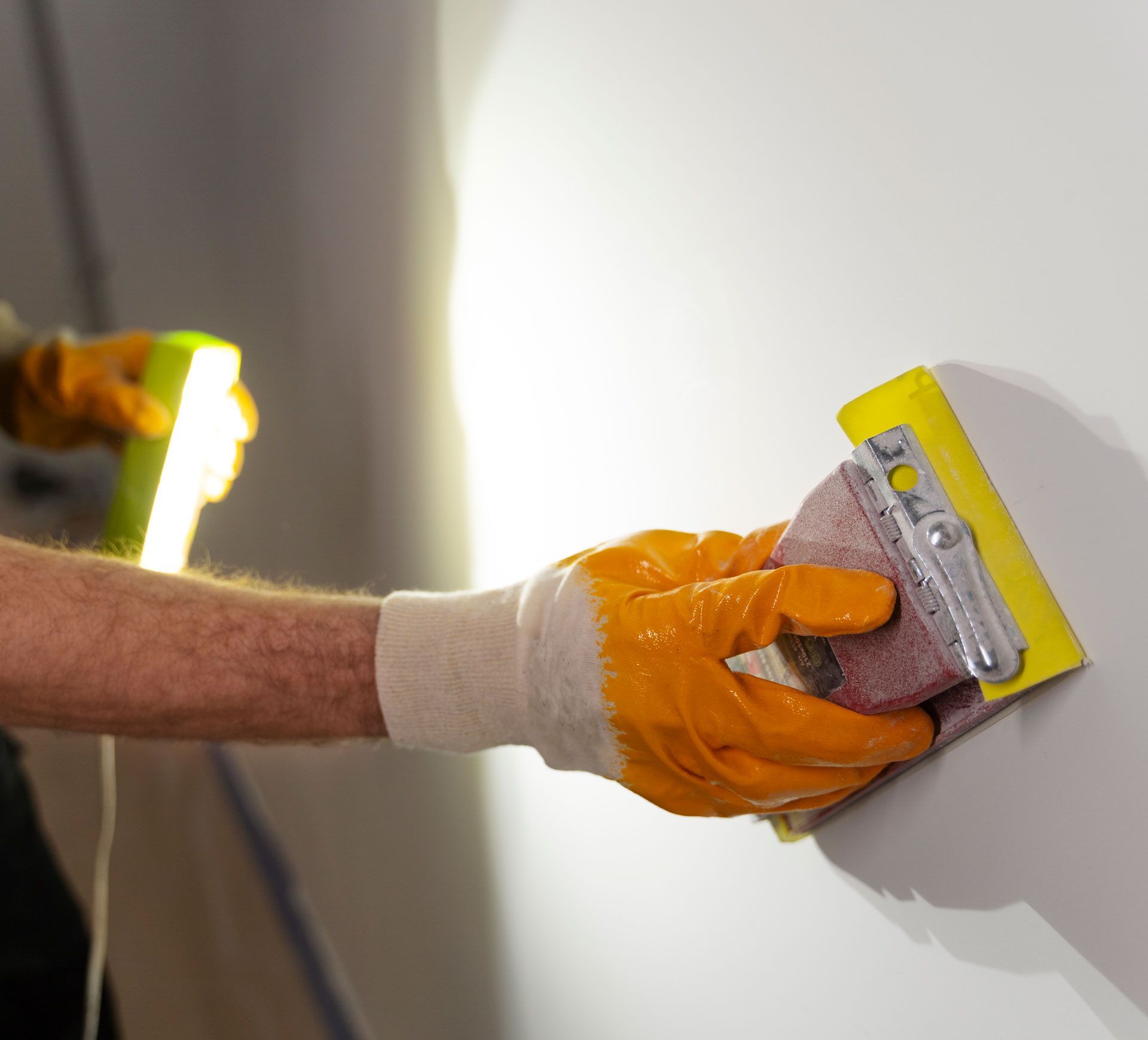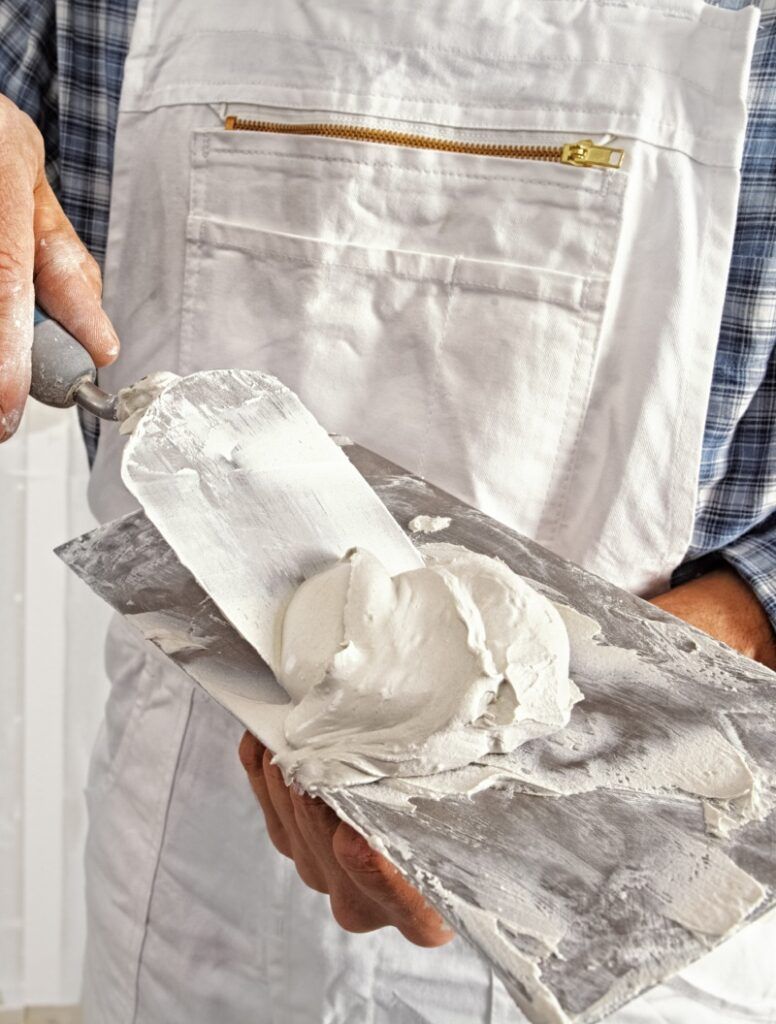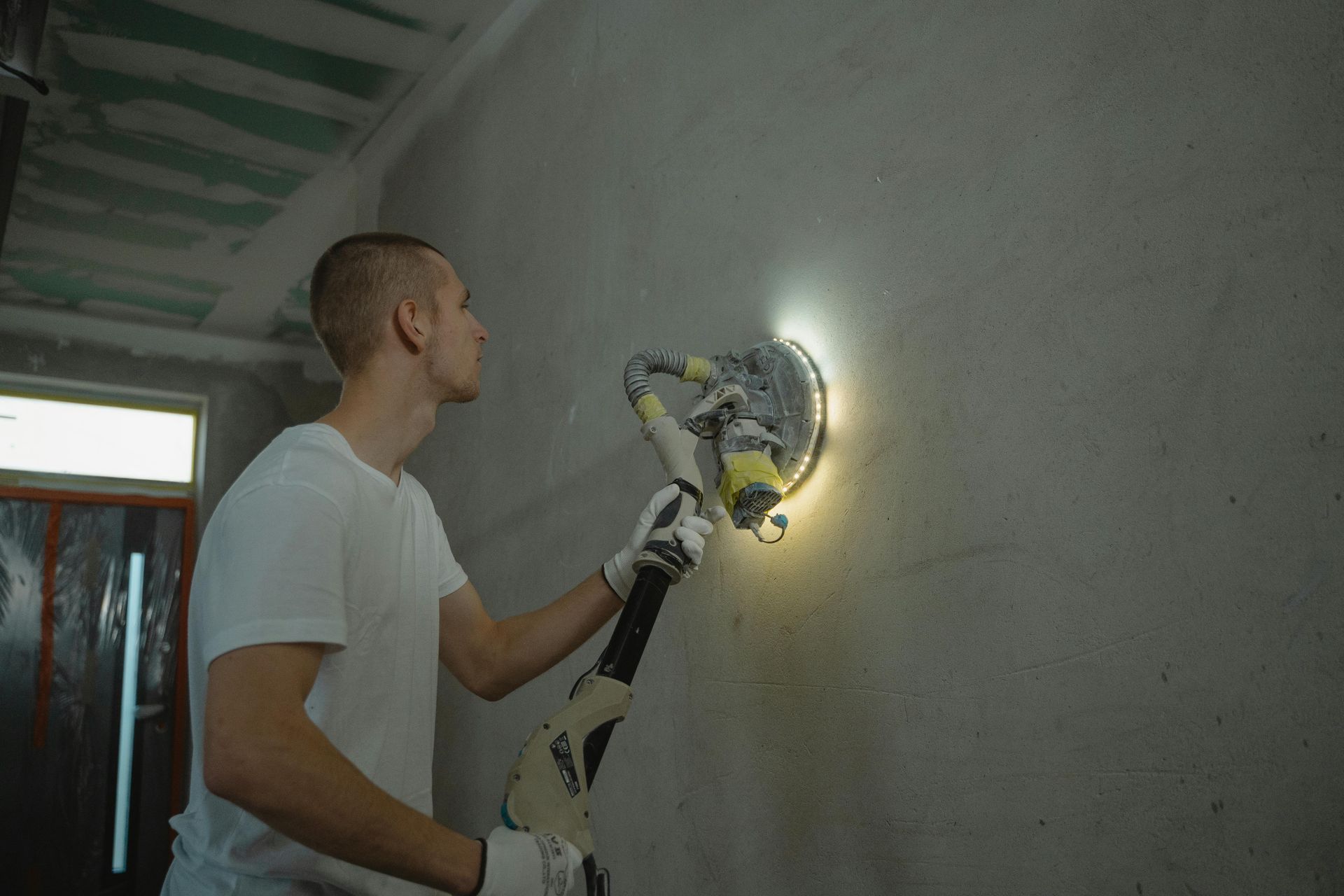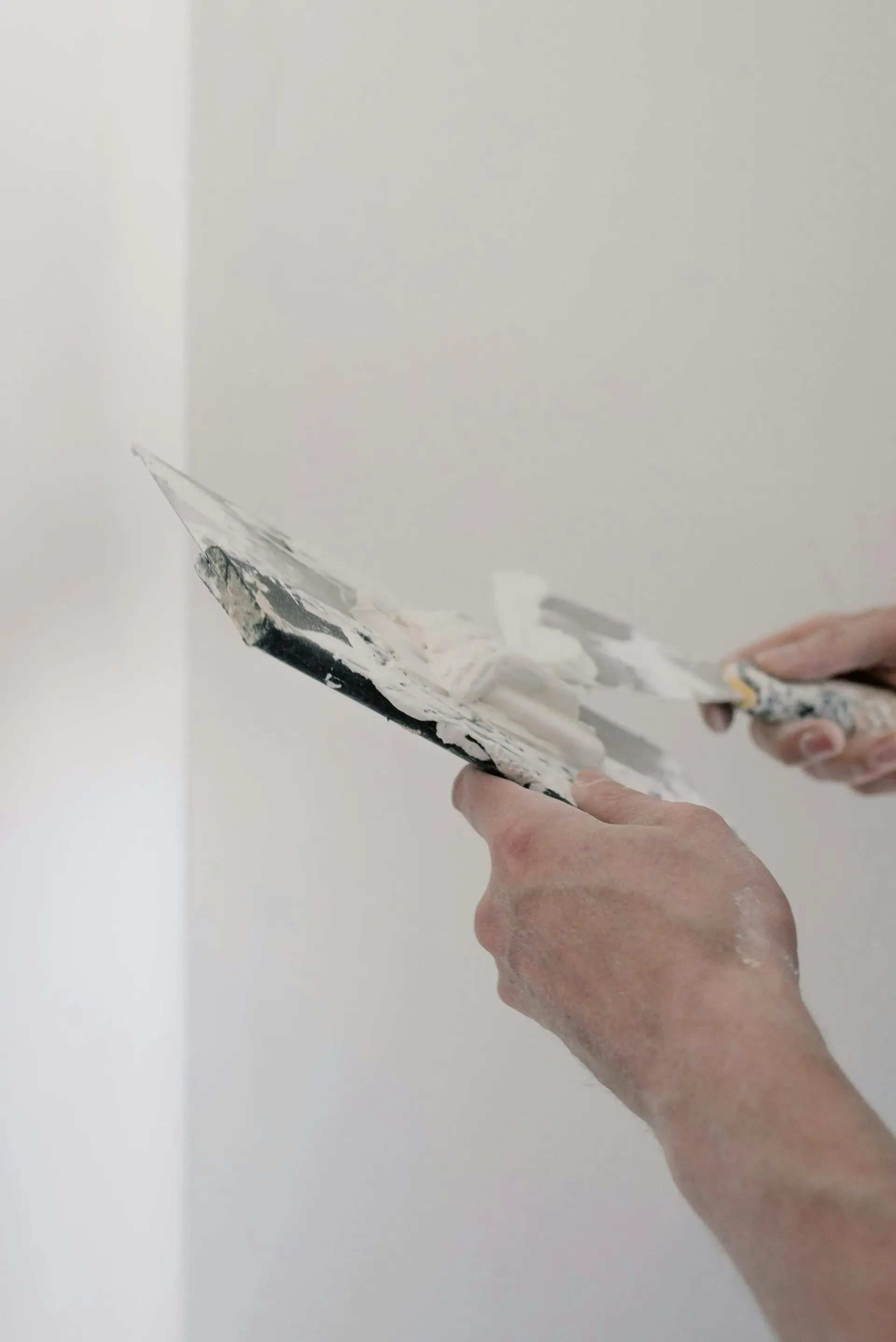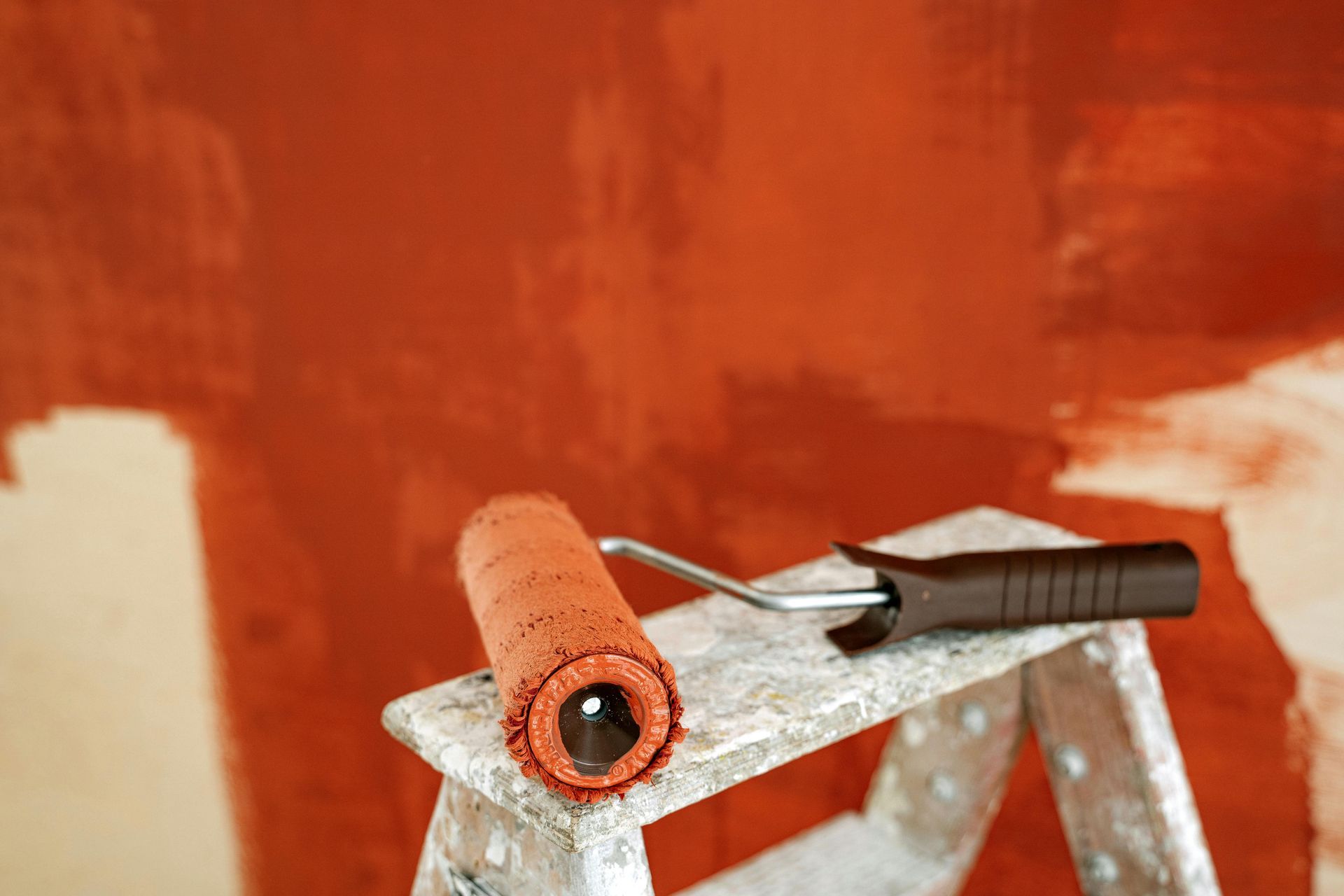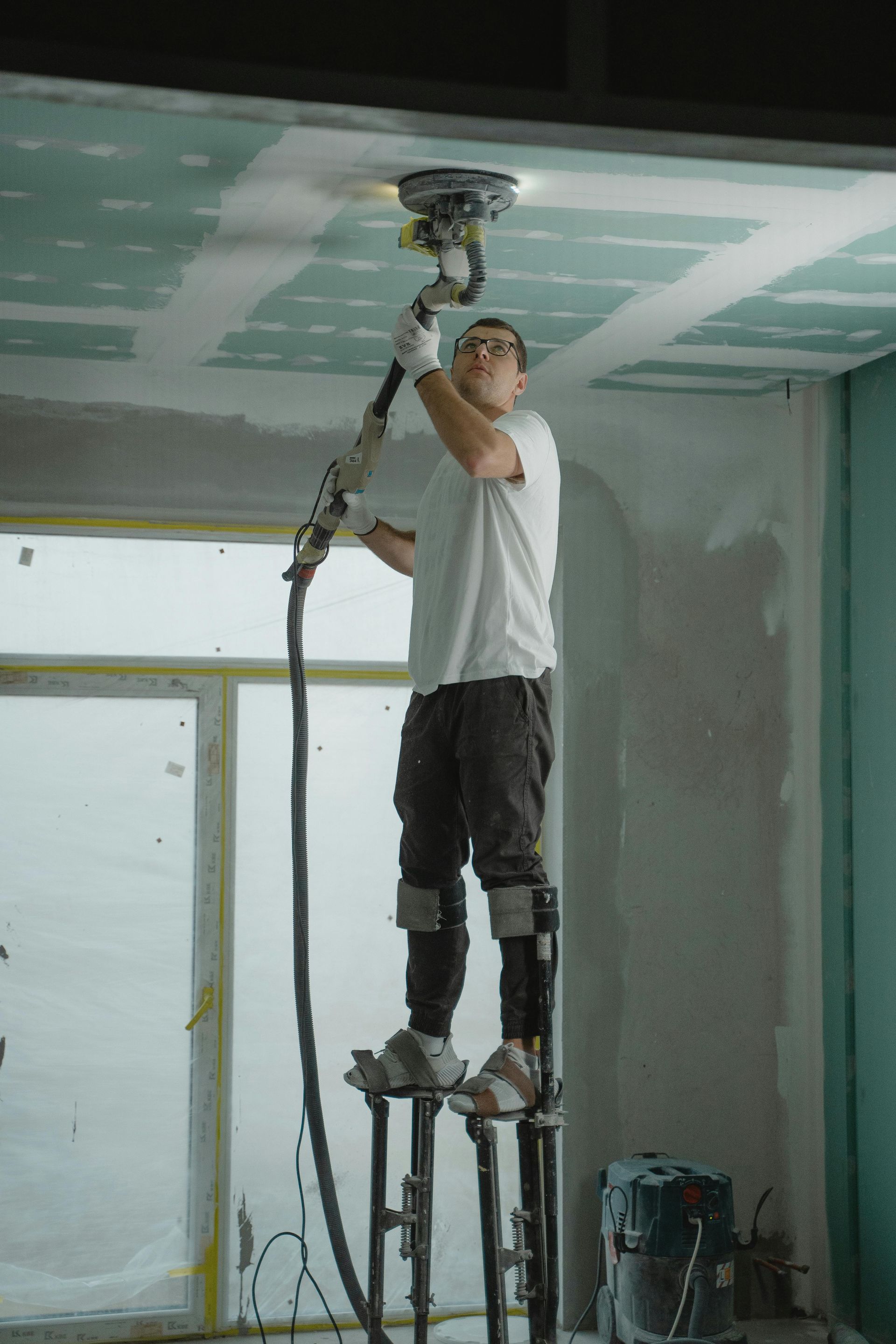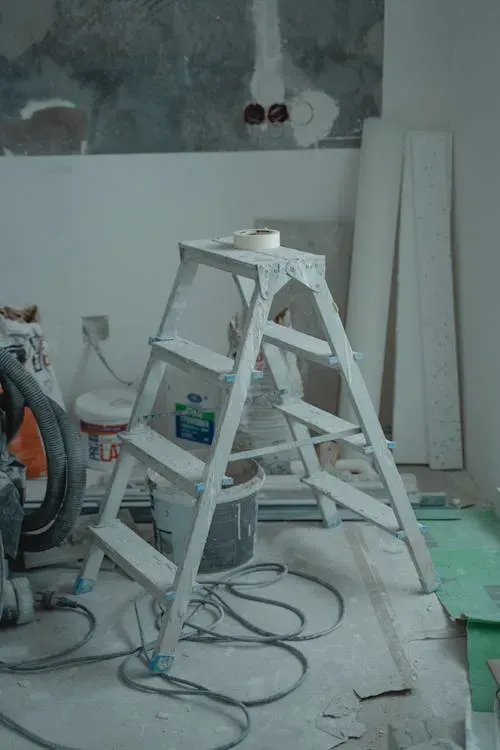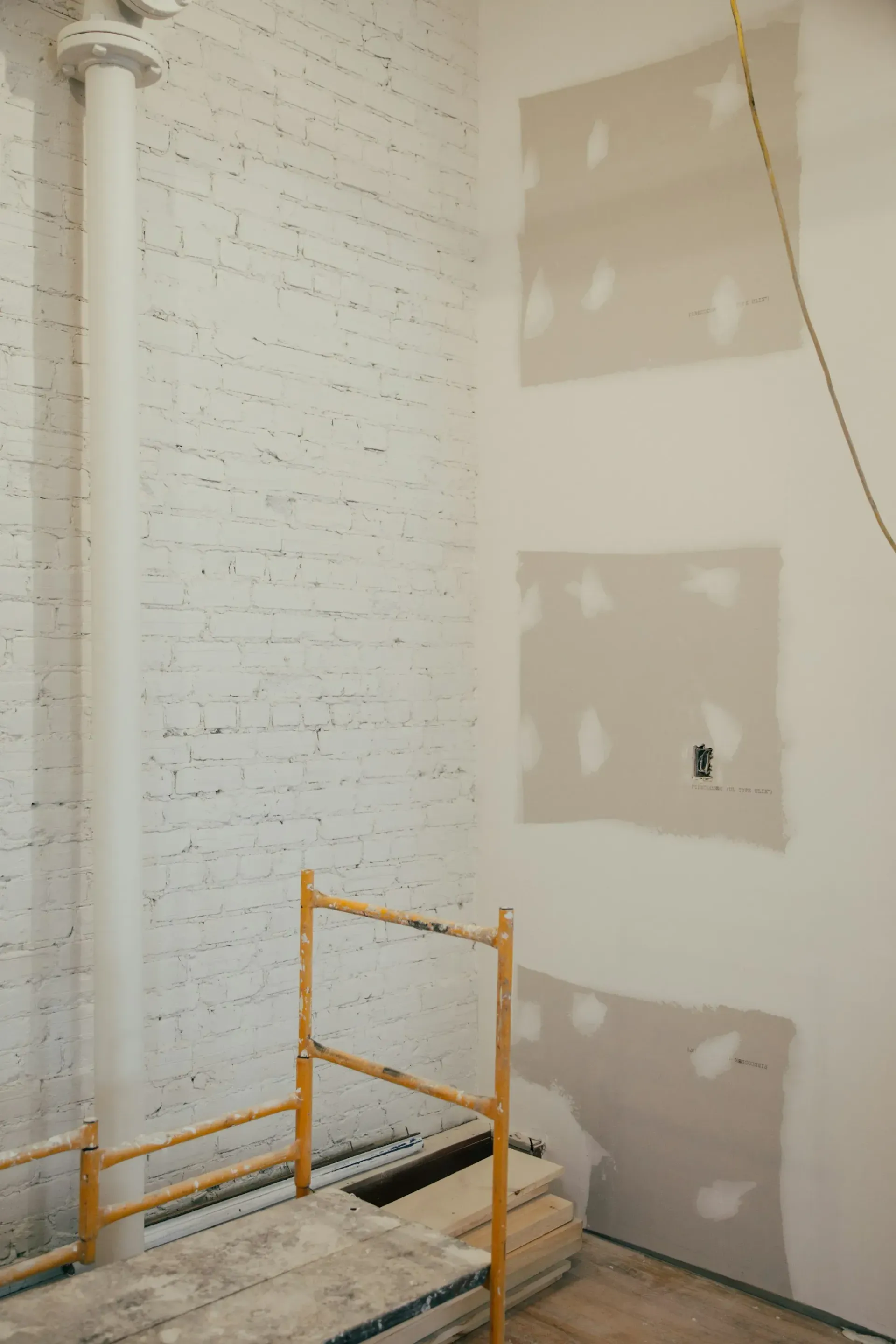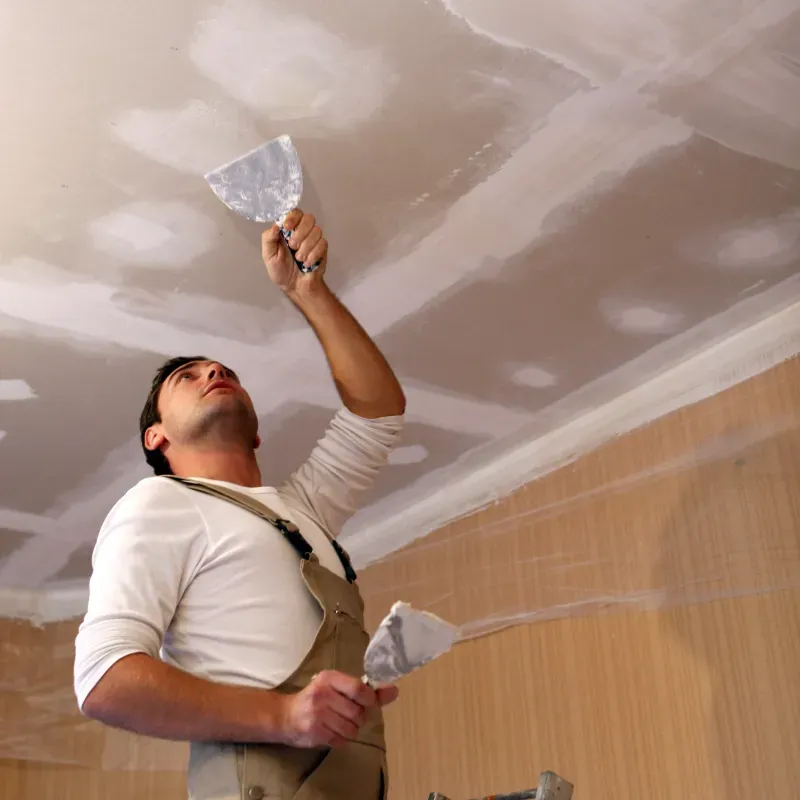
How Much Does It Cost to Patch the Ceiling?
Ceiling repairs can hit unexpectedly, whether from a pesky leak, cracks, or everyday wear and tear. Knowing the cost to patch a ceiling helps you plan ahead and decide if you should DIY or call in a pro. This guide covers what you need to know about ceiling repair costs, from materials and labor to finding the right contractor.
Fixing a ceiling doesn't have to be a mystery. With the right info, you can make smart decisions that keep your home looking great without breaking the bank.
Understanding Ceiling Damage
Ceiling damage comes in many forms, and understanding what you're dealing with can help you make the right repair choices. Here are the most common types of ceiling damage:
Types of Ceiling Damage
- Water Damage: This often shows up as stains or sagging and usually means there’s a leak above the ceiling. Left untreated, it can lead to mold and more extensive repairs. For more information on dealing with drywall issues, check out our guide on Common Drywall Problems and How to Fix Them.
- Cracks and Holes: These are often caused by shifting foundations, settling, or even heavy objects above the ceiling. While small cracks might seem harmless, they can grow over time. Learn about different patch types in our article, A Guide to Different Patch Types and Selection Criteria.
- Stains and Discoloration: Aside from water damage, stains can result from smoke, mildew, or other factors. They’re unsightly and often a sign that something else is wrong. Addressing stains requires understanding the underlying cause to ensure the right fix.
Causes of Ceiling Damage
- Leaks: Plumbing issues or roof leaks are common culprits. It's essential to fix the source of the leak before patching the ceiling to prevent future damage.
- Structural Issues: Homes settle over time, which can cause cracks in ceilings. This is especially true in older homes.
- Wear and Tear: Everyday life can take its toll, whether it’s a poorly aimed game of indoor basketball or simply years of existence.
Knowing the type and cause of ceiling damage is the first step to fixing it properly. Whether it's a small patch or a larger repair, understanding the problem helps you choose the best solution.
Factors Affecting Ceiling Patch Costs
When it comes to patching a ceiling, several factors can influence the overall cost. Understanding these can help you budget effectively and make informed decisions.
Material Costs
The materials you choose for your ceiling repair play a big role in the total cost. Here's a breakdown:
- Drywall or Sheetrock: These are the most common materials used for ceiling repairs. The cost can vary depending on the type and quality. If you're unsure about the differences, check out our guide on Sheetrock vs. Drywall to help you make the right choice.
- Plaster: Used for more traditional or high-end ceilings, plaster can be more expensive than drywall.
- Paint and Finishing Materials: After the patch, you'll need to repaint the ceiling to match the existing color. This includes primer, paint, and sometimes texture materials.
Labor Costs
Labor is often the most significant expense in ceiling repairs, especially if you hire a professional. Here are some factors that can affect labor costs:
- Hourly Rates for Contractors: Depending on your location and the contractor’s experience, hourly rates can vary widely. It's a good idea to get multiple quotes.
- Complexity and Size of the Repair: Larger or more complex repairs will take more time and labor, increasing the overall cost. For instance, dealing with water damage might require extra steps like mold remediation.
Additional Costs
Sometimes, other expenses can creep into your budget:
- Equipment Rental: If you're doing the repair yourself, you might need to rent or purchase tools like scaffolding or a drywall lift.
- Permit Fees: Some areas require permits for significant ceiling repairs. Check with your local authorities to see if this applies to your project.
Understanding these factors will give you a clearer picture of what to expect when budgeting for your ceiling repair project. Knowing what goes into the costs helps you decide whether to DIY or hire a pro.
Factors Affecting Ceiling Patch Costs
When it comes to patching a ceiling, several factors can influence the overall cost. Understanding these can help you budget effectively and make informed decisions.
Material Costs
The materials you choose for your ceiling repair play a big role in the total cost. Here's a breakdown:
- Drywall or Sheetrock: These are the most common materials used for ceiling repairs. The cost can vary depending on the type and quality. For example, basic drywall might cost around $10-$15 per sheet, while moisture-resistant drywall can run $20-$25 per sheet. If you're unsure about the differences, check out our guide on Sheetrock vs. Drywall to help you make the right choice.
- Plaster: Used for more traditional or high-end ceilings, plaster can be more expensive than drywall. Expect to pay between $3-$5 per square foot for plaster materials.
- Paint and Finishing Materials: After the patch, you'll need to repaint the ceiling to match the existing color. This includes primer, paint, and sometimes texture materials. A gallon of ceiling paint typically costs around $20-$40, and you'll need additional supplies like rollers and brushes.
Labor Costs
Labor is often the most significant expense in ceiling repairs, especially if you hire a professional. Here are some factors that can affect labor costs:
- Hourly Rates for Contractors: Depending on your location and the contractor’s experience, hourly rates can vary widely. On average, you might pay $50-$75 per hour for professional services.
- Complexity and Size of the Repair: Larger or more complex repairs will take more time and labor, increasing the overall cost. For instance, patching a small hole might cost $150-$300, while repairing extensive water damage could range from $500-$1,500 due to the extra steps required, such as mold remediation.
Additional Costs
Sometimes, other expenses can creep into your budget:
- Equipment Rental: If you're doing the repair yourself, you might need to rent or purchase tools like scaffolding or a drywall lift. Equipment rental can cost between $30-$50 per day.
- Permit Fees: Some areas require permits for significant ceiling repairs. Permit fees vary, but they can range from $50-$150 depending on your location and the scope of the work.
By considering these examples and estimates, you can better understand how different factors affect the cost of ceiling repairs. This knowledge will help you decide whether to take on the project yourself or hire a professional, ensuring you stay within your budget.
Cost Breakdown by Repair Type
Ceiling repair costs can vary widely depending on the extent of the damage and the repair method needed. Here's a detailed look at the different types of repairs and their associated costs.
Small Patch Repairs
For minor cracks and holes, small patch repairs are often sufficient. Here's what you can expect:
- Average Cost: Typically ranges from $150 to $300. This includes materials like drywall, joint compound, and paint.
- Time Frame: A small patch can usually be completed in a few hours, making it a quick and relatively inexpensive repair.
- DIY or Professional: Small patches are often doable as a DIY project. If you're handy, you can save money by doing it yourself. However, hiring a pro ensures a seamless finish, especially if matching textures and paint is challenging.
Large Patch Repairs
When dealing with more extensive damage, larger patch repairs may be necessary:
- Average Cost: Usually between $400 and $1,000, depending on the size and complexity. This covers more materials and increased labor.
- Time Frame: Large patch repairs might take a day or two, especially if multiple layers or drying times are required.
- DIY or Professional: While ambitious DIYers might tackle larger patches, professional help is often recommended to ensure the patch blends seamlessly with the rest of the ceiling.
Specialized Repairs
Some ceiling issues require specialized techniques or materials:
- Ceiling Textures and Finishes: Matching an existing texture can be tricky and may require specialized skills. Texturing costs can add an extra $200 to $500 to the repair.
- Water or Structural Damage: Repairs involving water or structural damage can be more complex. Costs may range from $500 to $2,000, depending on the extent of the damage and any underlying issues that need addressing.
- Additional Services: In some cases, repairs might include services like mold remediation, which can increase the total cost significantly.
Choosing the right type of repair depends on the specific damage and your budget. Assessing the situation accurately ensures you choose the best repair option and avoid unnecessary expenses.
DIY vs. Professional Ceiling Repair
Deciding whether to patch your ceiling yourself or hire a professional depends on various factors, including the size of the repair, your skill level, and your budget. Here's a look at the pros and cons of each option.
Pros and Cons of DIY Ceiling Repair
Pros:
- Cost Savings: Doing the repair yourself can save money on labor costs. For small patches, you might only spend $30-$100 on materials.
- Learning Opportunity: Tackling a DIY project can be a rewarding experience, allowing you to learn new skills and gain confidence in home repairs.
- Flexibility: You can work on your own schedule, completing the repair at your convenience.
Cons:
- Skill Requirements: Ceiling repairs can be tricky, especially if you're dealing with textured ceilings or complex damage. Mistakes can lead to more work and higher costs in the long run.
- Time-Consuming: What seems like a quick fix can turn into a lengthy project if unexpected challenges arise.
- Quality Concerns: Achieving a seamless finish can be difficult without professional skills and tools. Mismatched textures or paint can make the repair stand out.
Benefits of Hiring a Professional
Quality Assurance: Professionals have the experience and tools to ensure a high-quality repair that blends seamlessly with the existing ceiling. They can match textures and paint precisely, giving your ceiling a polished look.
Time Efficiency: Hiring a professional saves you time and effort. Pros can often complete repairs more quickly and efficiently than DIY attempts.
Complex Repairs: For large or complex repairs, professional help is often necessary. They can address underlying issues, such as water damage or structural problems, that might not be apparent to a DIYer.
Warranty and Guarantees: Many contractors offer warranties on their work, providing peace of mind if issues arise later on.
While DIY repairs can save money, they may not be the best choice for everyone. Hiring a professional ensures high-quality results and saves time, especially for complex repairs.
Tips for Finding the Right Contractor
Hiring the right contractor for your ceiling repair can make a big difference in the quality and efficiency of the work. Here are some practical tips to help you find a reliable and skilled professional.
Research and Compare
- Get Multiple Quotes: Contact at least three contractors to get quotes for your ceiling repair. This helps you compare prices and get a sense of the market rate for your project. Be wary of quotes that are significantly lower than others, as they may indicate a lack of experience or hidden costs.
- Check Reviews and References: Look for contractors with positive reviews and ask for references from previous clients. Talking to past customers can provide insight into the contractor’s reliability and quality of work. Websites like Yelp or Angie's List can be valuable resources for finding reviews.
- Verify Licenses and Insurance: Make sure the contractor is licensed and insured. This protects you from liability if any accidents occur during the repair. Licenses also indicate that the contractor meets the necessary professional standards.
Questions to Ask
- Experience with Specific Repairs: Ask the contractor about their experience with your specific type of repair. For example, if you have water damage, ensure they have experience handling similar situations.
- Time Frame: Inquire about the estimated time to complete the repair. This helps you plan accordingly and ensures the contractor can meet your schedule.
- Warranty and Service Guarantees: Find out if the contractor offers any warranties or guarantees on their work. A warranty provides peace of mind and protection against future issues.
- Detailed Estimate: Request a detailed written estimate that includes labor, materials, and any additional costs. This helps prevent surprises and ensures you understand what you're paying for.
- Contract Terms: Before signing any contract, read the terms carefully and ensure you understand the scope of work, payment schedule, and any potential additional charges.
Choosing the right contractor involves careful research and asking the right questions. By taking the time to evaluate your options, you can find a trustworthy professional who will deliver quality results.
Conclusion
Patching a ceiling doesn't have to be a daunting task. By understanding the types of damage, knowing the factors that affect costs, and deciding between DIY and professional repair, you can make informed decisions that suit your needs and budget.
Key takeaways:
- Assess the Damage: Identify the type and extent of the damage to choose the right repair method.
- Budget Wisely: Consider material, labor, and additional costs when planning your repair budget.
- DIY or Professional: Weigh the pros and cons of tackling the repair yourself versus hiring a contractor.
- Choose the Right Contractor: If you opt for professional help, do your research to find a reliable contractor who can deliver quality work.
Taking the time to understand your options ensures a smoother repair process and a ceiling that looks as good as new. Whether you decide to patch it up yourself or call in the pros, you're now equipped with the knowledge to tackle your ceiling repair with confidence.
If you're looking for professional help, the Patch Boys of South Central PA are a great choice. They offer a wide range of services, including drywall repair, skim coating, ceiling repair, patching, and installation & framing. Serving areas like Camp Hill, Gettysburg, Harrisburg, Hershey, Lancaster, Lititz, Mechanicsburg, and York, they have the expertise to handle any ceiling or drywall repair job. With a reputation for quality and reliability, they're ready to help you restore your ceiling to its best condition.
Frequently Asked Questions
What is the average cost to patch a small hole in the ceiling?
The average cost to patch a small hole ranges from $150 to $300, depending on materials and labor. DIY repairs may cost less if you already have the tools and supplies.
How long does it take to patch a ceiling?
Small patches can take a few hours, while larger or more complex repairs might take a day or two. Professional repairs are usually quicker and more efficient.
Can I patch my ceiling myself, or should I hire a professional?
DIY repairs are suitable for small, straightforward patches if you have the skills and tools. Hiring a professional is recommended for larger, more complex repairs to ensure quality and safety.
What are the signs that my ceiling needs patching?
Look for signs like cracks, holes, stains, or sagging. These indicate damage that may require repair to prevent further issues.
Are there any additional costs for ceiling repair?
Additional costs might include equipment rental for DIY repairs or permit fees for more extensive work. It's essential to consider these when budgeting for your project.

